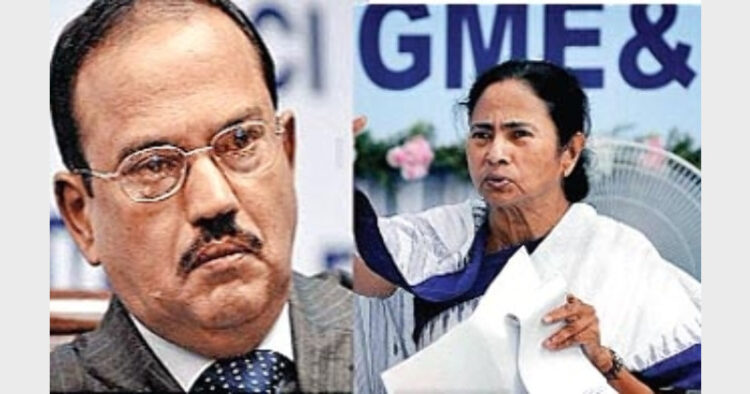With Bangladesh becoming the new hub for terrorists targeting India, West Bengal, which shares a 2,216-km-long porous border with Bangladesh, is waking up to a new security concern. The Bengal-Bangladesh border, which is though heavily guarded by security forces, is so porous that terrorists have found it a convenient route to sneak into India. Until now, terror groups have used Bengal as an entry point. But lately it has become a target for strikes as well and the administration simply cannot hide its worry.
“The links for most of the bombings that have taken place in the hinterland or down south in the last six-eight months have been traced to Bangladesh. And my worry is that investigating agencies are pointing fingers at the Indo-Bangladesh border also. There is a worry that it is being used as a transit route,” says IG, BSF South Bengal Frontier, Somesh Goyal.
West Bengal IG, Law and Order, Raj Kanoija says, “What did come as quite an eye opener was the method used by these people. That they could actually use exploding device inside a train, which is full of innocent people is something, which was new. It had never happened in Bengal.”
Ever since the National Investigation Agency (NIA) has been ordered to take up the “accidental” Burdwan burst, news about unearthing of terrorism-related cases in different parts of the State are flooding the media.Not only the investigating police are being attacked to prevent them from proceeding further, Jamaat-led elements have also turned violent in protest against investigation by the central agency. Apart from destruction of vital forensic evidence by the State police, even the State-controlled hospital has refused cooperation.
The investigation so far has given out distinct indicators that the overall situation has international dimension. It has revealed that India seems to be getting drawn into the vortex of international terror scheme.
In a sensational revelation, intelligence agencies and the NIA told the Centre that at least 58 terror modules are active in West Bengal, most specialising in making IEDs. A status report on the investigations into the Burdwan blast also states at least 180 Bangladeshi nationals who managed to sneak into India in the past few months were part of these terror modules, and belong to the JMB, Bangladesh.
Intelligence sources said it was in the backdrop of these sensational revelations that NIA director-general Sharad Kumar visited Burdwan on Friday and took stock of the investigation into the blast and the Jamaat’s vast network.
Yet another report has been received that about 800 bombs have been recovered from a government health centre. If we hold on, more such reports will continue to pour in. For example, another report says a tunnel has been found leading to a madrasa.
Over 30 religious militant organisations have set up their network in Bangladesh since 1989 with the central objective of establishing an Islamic state, as per source..
“Besides pointing out that Jalpaiguri has turned into yet another terror point for JMB, the central representatives also handed over a list of unrecognised madrasas in the state operating as terror-breeding hubs,” said a state government source on condition of anonymity.
The central team also informed the chief minister on how during the last couple years the number of terror modules in West Bengal has gone beyond 50.
Opposition parties have accused Banerjee of allowing extremist elements to flourish in the state for vote-bank politics.
“It is clear that Trinamool Congress is allowing jihadi elements in Bengal. Mere assurances will not drive them out,” said state BJP president Rahul Sinha.
The central delegation’s visit comes as the Union government prepares to send a report on the issue to Bangladesh following a request from the Sheikh Hasina government.
(With inputs from Agencies)














Comments